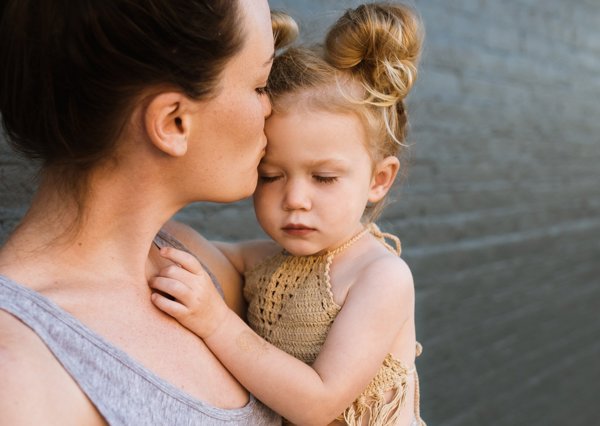6 Tips for Overcoming Separation Anxiety

Could your child have separation anxiety? You’ve bonded with your baby since birth, and your undying love for one another has created a close relationship between the two of you. There is great pleasure that comes from spending time with your child, but time apart is something we cannot avoid—and sometimes we need it!
How do you know if your child has separation anxiety?
If walking into another room can evoke pleas for hugs and kisses, or your trip to the bathroom causes a breakdown, then your child is struggling with separation anxiety.
This is a completely natural state of being; it results from your child’s developing brain. Separation anxiety emerges as a child becomes aware that a loved one exists even when they are out of sight, and the child is distraught that the loved one is somewhere else.
While this unconditional love can be comforting and flattering for parents (especially at first), it can also be exhausting. It’s a difficult transition, though—parents experience immense amounts of guilt from leaving their children, and their children undergo immense panic and stress from this anxiety. You can find more information about how separation anxiety develops here.
Eventually, with love, support, and consistency, your child can move beyond this stage. Until you and your child tackle separation anxiety, “good-byes” will be difficult for you and your child. At these times, reassure your child that you love them and you will get through this.
With these 6 simple steps, you can tackle separation anxiety and enjoy a much-deserved night out without much worry:
1. Don’t Sneak Off
Sneaking off seems like a simple solution—waiting until your child is distracted by the babysitter lets you leave without witnessing the tears.
- This doesn’t help the problem; it only makes your child feel like you’re abandoning them.
- It will break their trust.
- This may only make it harder for your child to leave your side.
2. Explain What’s Happening
Instead of sneaking off, explain to your child you’re leaving, but you'll be back soon.
- Tell them where you’re going—they won’t be left wondering.
- Use cues they can understand.
- Give an idea of when you will return.
3. Affirm Their Feelings
As out of proportion as his reaction might feel to you, your child’s feelings are real to him.
- Acknowledge and give name to his feelings. For example, “You are very upset I am leaving. I get that, and I'm sorry you're so sad.”
- Let them know it's okay to feel upset.
4. Put on a Positive Face
Separation anxiety is a two-way street—but don’t let your child know that.
- Give them a smile, and let your child know you're calm. This will help them know it's normal to leave one another!
- A positive attitude can make the babysitter’s job a little easier.
- It will help put your child at ease.
5. Establish a “Good Bye” Ritual
Create something you'll follow each time you say good bye.
- Rituals bring routine into a child’s life and can provide a sense of comfort and routine.
- A secret handshake, four hugs and a kiss on the forehead, a kiss on each finger as you fold them down into a fist (to hold on to the kisses), a favorite story before you go, etc.
- A sweet goodbye can remind your child you love and care for them.
6. Give a Firm Goodbye
When it’s time to go, don’t draw out the goodbye.
- Warn your child a few minutes before you leave and give them a warm goodbye before heading out.
- Don’t rush back to comfort them.
- Remind your child that everything will be fine, and confidently head out of the door.
By following these steps, you can coax your child through the tough stage of separation anxiety. Give it some time and be firm - but understanding - with your child, as they work their way to reaching a healthy level of attachment. By the time they leave for college, you'll be missing the days of separation anxiety, but you will feel confident in their ability to be a (somewhat) independent adult.
Childcare is an option for preschoolers dealing with separation anxiety. Find trained, caring professionals at The Sunshine House to make the transition to independence. Check out our programs here!